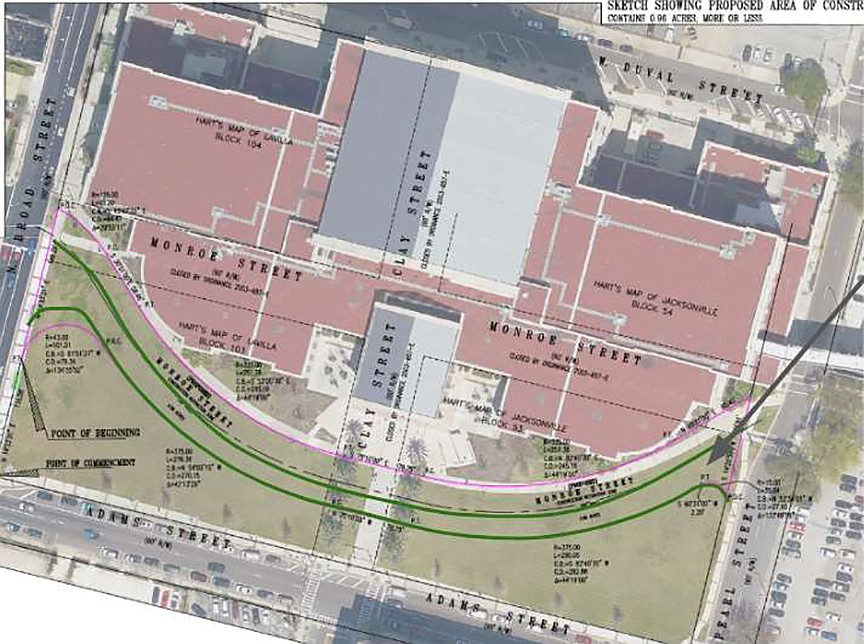
The Cultural Council of Greater Jacksonville’s Art in Public Places Committee decided June 10 not to decide how to proceed with the plaza art project at the Duval County Courthouse until its next meeting, scheduled July 8.
Committee members were unanimous in concerns about restrictions placed on the project by city agencies, including the Jacksonville Sheriff’s Office, Public Works Department and the Downtown Investment Authority.
The project’s budget is $619,000, equal to 0.75% of the courthouse construction cost designated by a city ordinance for public art at the site.
The Stakeholder Committee recommended June 2 that the project proceed with restrictions including no additional trees in the space in front of the courthouse, no long-term seating and no water features or landscaping that would have to be maintained by the city over and above its current scheduled maintenance of the plaza.
JSO vetoed planting additional trees so it could preserve its ability to adequately monitor the plaza with video cameras installed outside the courthouse.
No long-term seating is another security concern that was addressed by the stakeholders. The prohibition is intended to prevent someone from waiting outside the courthouse to ambush another person, a victim of domestic violence with a court hearing date, for example.
Another restriction included in the stakeholders’ recommendation is that the design must account for the possible restoration of Monroe Street along the front of the courthouse.
“Nobody wants the roadway,” but the DIA needs the option to restore that portion of Monroe Street to convince the Florida Department of Transportation to approve converting Adams Street from one-way to two-way traffic, said Glenn Weiss, Cultural Council public art program director.
Adding a new roadway to the 2-acre plaza between the courthouse entrance and Adams Street would affect how artists could design the public art installation.
“We need full commitment from the city. There has to be a clear answer about what’s happening with this space,” said Tracie Thornton, a committee member.
Committee Chair Cory Driscoll said whether Monroe Street will be restored on the site has been debated for 10 years, since the original site design for the courthouse was being considered.
“This needs to be addressed by the city before we vote on this,” Driscoll said.
The Downtown Development Review Board approved a resolution in 2011 to abandon a two-block section of Monroe Street in front of the courthouse, but City Council denied the proposal.
Weiss said the Cultural Council, which is authorized by ordinance to manage public art, plans to meet with Mayor Lenny Curry’s staff to determine what will happen to the Confederate soldier statue the city removed June 9 from Hemming Park and other Confederate monuments in Duval County.
There is no city policy for the removal, relocation or reinterpretation of statues or monuments, Weiss said.
“The concept is completely undeveloped at this point. There is no plan at the moment,” he said.